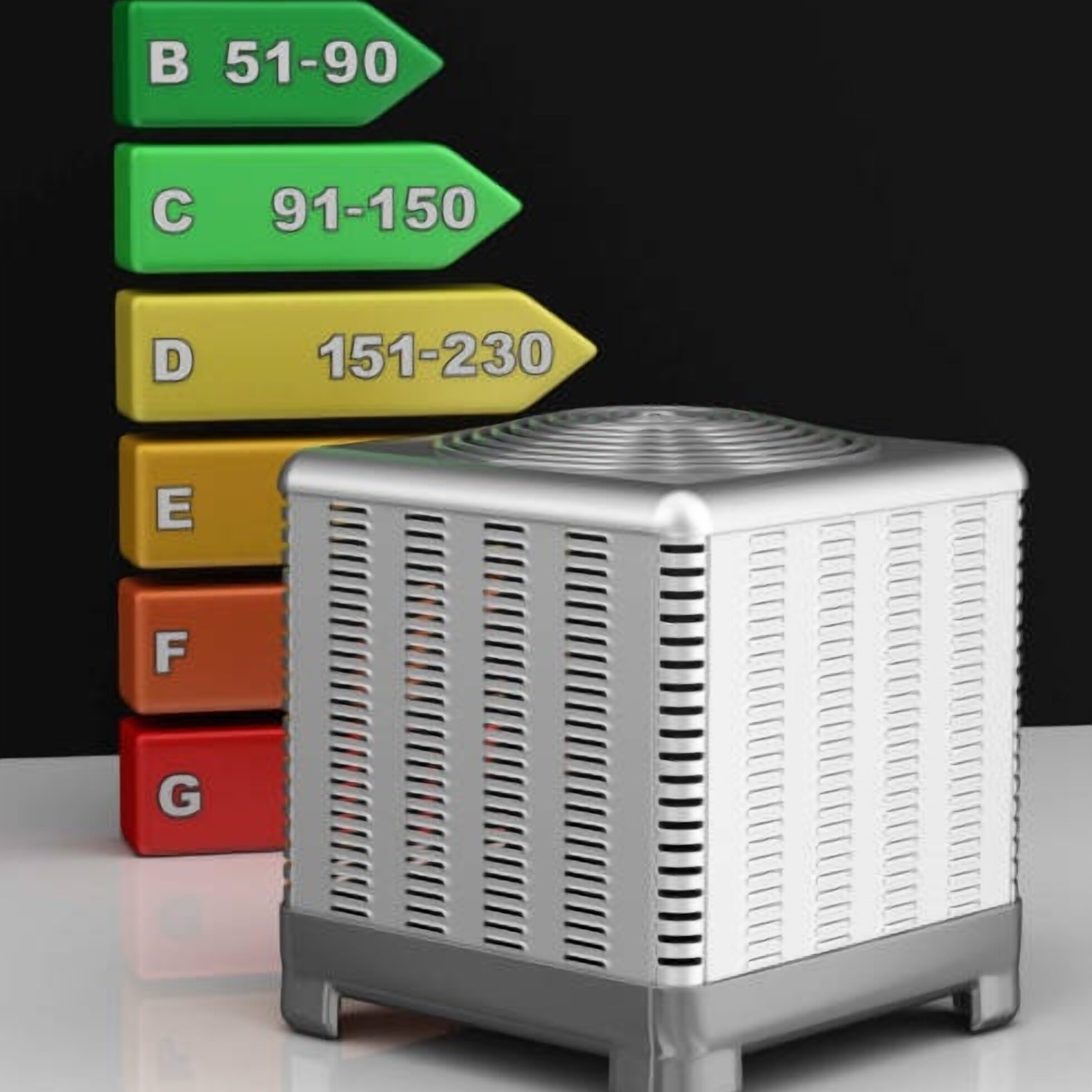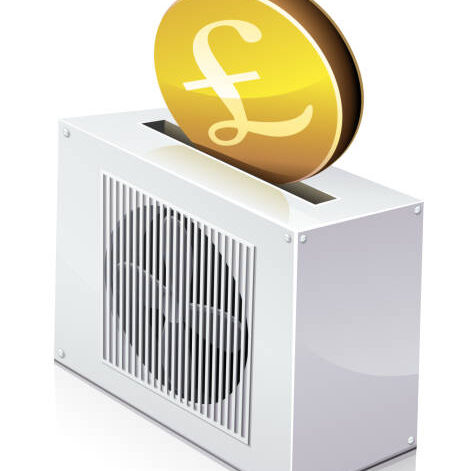
Are you considering installing a heat pump in your home? One of the most important factors to consider is the cost. Heat pumps can be a great investment, but it’s important to understand how much you can expect to pay before making a decision.
The cost of a heat pump can vary depending on a number of factors, including the size of your home, the type of heat pump you choose, and the efficiency rating of the unit. In general, air-source heat pumps tend to be less expensive than geothermal (ground source) heat pumps, and smaller units will cost less than larger ones. Additionally, the cost of installation will also need to be factored into your budget.
Factors Affecting Heat Pump Cost
If you’re considering a heat pump installation, it’s important to understand the factors that can affect the cost. Here are some key factors to keep in mind:
Type of Heat Pump
There are several types of heat pumps available, including air source, water source, and ground source. Air source heat pumps tend to be the most affordable, while ground source heat pumps are typically the most expensive. Dual fuel heat pumps, which combine a heat pump with a gas furnace, can also be a more expensive option.
Size of Heat Pump
The size of your heat pump will depend on the size of your home and your heating and cooling needs. A larger heat pump will be more expensive than a smaller one, but it’s important to choose the right size for your home to ensure optimal efficiency and performance.
Location of Installation
The location of your heat pump installation can also affect the cost. If you’re replacing an existing heat pump, installation may be less expensive. However, if you’re installing a heat pump for the first time, you may need to factor in additional costs for ductwork, electrical work, or other installation-related expenses.
Additional Features
Additional features, such as variable-speed motors, zoning systems, or air purification systems, can also increase the cost of your heat pump installation. However, these features can also improve the efficiency and performance of your heat pump, potentially saving you money in the long run.
Average Heat Pump Cost

When it comes to purchasing and installing a heat pump, the cost can vary depending on several factors. The average cost of a heat pump in the UK is around £4,000 to £8,000, including installation. However, this cost can vary depending on the type of heat pump you choose, the size of your home, and the complexity of the installation process.
Here is a breakdown of the average cost of different types of heat pumps:
| Type of Heat Pump | Average Cost (including installation) |
|---|---|
| Air-source heat pump | £4,000 to £8,000 |
| Ground-source heat pump | £10,000 to £18,000 |
| Air-to-water heat pump | £6,000 to £12,000 |
| Exhaust-air heat pump | £5,000 to £8,000 |
It’s important to note that the cost of a heat pump is also influenced by the efficiency rating of the unit. Higher efficiency units tend to cost more upfront, but can save you money on your energy bills in the long run.
When considering the cost of a heat pump, it’s also important to factor in any potential government incentives or rebates that may be available. The UK government offers a Renewable Heat Incentive (RHI) program that provides financial support to homeowners who install renewable heating systems like heat pumps.
In addition to the cost of the heat pump itself, there may be additional costs associated with installation, such as upgrading your electrical system or ductwork. It’s important to get a detailed quote from a qualified installer to understand the total cost of your heat pump installation.
Factors That Can Affect Installation Cost
When it comes to installing a heat pump, there are several factors that can affect the overall cost. Here are some of the key considerations:
Type of Property
The type of property you have can play a big role in determining the installation cost of a heat pump. For example, if you have a large home with multiple floors, you may need a larger and more powerful heat pump to adequately heat and cool the space. This can increase the cost of installation.
Additionally, if you have an older home that requires significant modifications to accommodate a heat pump, this can also add to the overall cost.
Existing Heating System
If you are replacing an existing heating system with a heat pump, the cost of installation can vary depending on the type of system you currently have. For example, if you have a forced-air system, you may need to install new ductwork to accommodate the heat pump. This can add to the overall cost.
On the other hand, if you have a radiant heating system, installing a heat pump may be simpler and less expensive.
Geographic Location
Where you live can also impact the cost of installing a heat pump. For example, if you live in a colder climate, you may need a more powerful heat pump to adequately heat your home. This can increase the total cost of installation.
Additionally, if you live in an area with high labour costs, this can also add to the cost of installation.
When it comes to installing a heat pump, it’s important to consider all of these factors to get an accurate estimate of the total cost. By doing so, you can ensure that you are getting the best value for your money and that your heat pump is installed correctly and efficiently.
Running Costs of Heat Pumps
If you’re considering installing a heat pump, it’s essential to understand the running costs. The running costs of a heat pump depend on factors such as the size, efficiency rating, and type of heat pump you choose. Here’s a breakdown of the running costs of different types of heat pumps:
| Type of Heat Pump | Running Cost per Hour | Annual Running Cost* |
|---|---|---|
| Air-Source | £0.10 – £0.25 | £400 – £1,000 |
| Ground-Source | £0.05 – £0.15 | £200 – £600 |
| Ductless Mini-Split | £0.10 – £0.20 | £400 – £800 |
*Based on running cost per hour multiplied by how long a heat pump runs in a year.
As you can see, the running costs of a heat pump can vary significantly depending on the type of heat pump you choose. Ground-source heat pumps tend to be more efficient and therefore have lower running costs than air-source heat pumps. Ductless mini-split heat pumps fall somewhere in between.
It’s also worth noting that the running costs of a heat pump can be affected by factors such as the size of your home, the climate in your area, and the cost of electricity. However, in general, heat pumps are more energy-efficient than traditional heating systems, which can help to keep your running costs down over time.
When considering the running costs of a heat pump, it’s essential to take into account the initial installation cost, as well as the ongoing running costs. By choosing an energy-efficient heat pump and maintaining it properly, you can enjoy lower running costs and a more comfortable home.
Ways to Save Money on Heat Pump Costs
If you’re considering installing a heat pump, you may be wondering how to save money on the upfront costs. Here are a few ways to reduce the cost of installing and running a heat pump:
Government Grants and Incentives
The UK government has a number of grants and incentives available to help you cover the cost of installing a heat pump. The most popular is the Renewable Heat Incentive (RHI), which provides financial support to households and businesses that install renewable heating systems. The RHI is available for both air source and ground source heat pumps, and can cover up to 100% of the installation costs. In addition to the RHI, there are also local council grants and schemes available that can help you save money on the upfront costs of installing a heat pump.
Air Source Heat Pump Grant UK: How to Apply and Qualify
Energy Efficiency
One of the biggest advantages of heat pumps is their energy efficiency. By using the heat from the air or ground, a heat pump can provide up to four times more energy than it consumes. To maximise the energy efficiency of your heat pump, make sure it is properly sized for your home, and that it is installed and maintained by a qualified professional. You can also save money on your energy bills by setting your heat pump to run at a lower temperature, and by using a programmable thermostat to control when it runs.
Maintenance and Repairs
Like any heating system, a heat pump requires regular maintenance and occasional repairs to keep it running efficiently. To avoid costly repairs, make sure you schedule regular maintenance with a qualified professional. This should include cleaning the filters, checking the refrigerant levels, and inspecting the electrical connections. If you do need to make repairs, be sure to use a qualified professional, and consider investing in a maintenance contract to cover the cost of any unexpected repairs.
